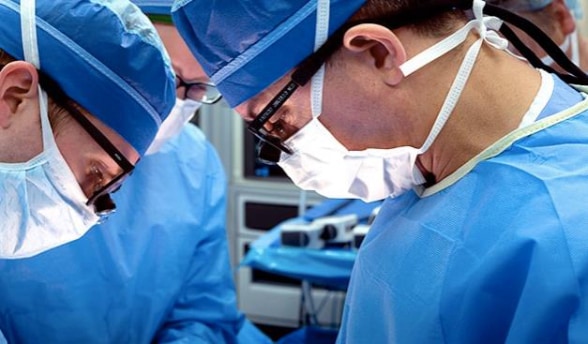Feb. 19, 2019
"Your child has a kidney tumor" is a diagnosis no parent wants to hear. Kidney cancer is rare in children. Wilms' tumor is the most common type of kidney cancer in kids, with between 500 and 600 children diagnosed each year in the United States. Thanks to advances in treatments over the past several decades, survival rates from this rare cancer have improved significantly.
Every Wilms' tumor is different ― in size, number and location of the tumor and whether it has spread to other organs. As a result, the multidisciplinary team at Mayo Clinic assembles an individualized care plan for each child.
"From the moment a child is diagnosed with a kidney tumor, our team meets to discuss the plan of attack," says Candace F. Granberg, M.D., a pediatric urologist at Mayo Clinic's campus in Rochester, Minnesota. "Importantly, we determine if the treatment for the cancer may affect future fertility, and if so, we offer the family options for fertility preservation."
The Fertility Preservation Program at Mayo Clinic is one of few in the country with an approved research protocol for prepubertal boys and girls who will receive chemotherapy and in some cases radiation that may impair future fertility. The team of pediatric urologists, pediatric surgeons, medical oncologists, pediatric gynecologist, embryologist and lab specialists mobilizes quickly to meet with families, and arrange for the procedure for selected candidates.
Another advancement in Wilms' tumor treatment is the incorporation of minimally invasive surgery in select cases. Many times if a tumor is very large, surgery entails removal of the entire kidney through a large incision on the abdomen.
 Robot-assisted laparoscopic approach
Robot-assisted laparoscopic approach
The single-port robotic system allows the surgery to be completed through a 2.5-cm incision.
"Depending on the size and location of tumor(s), when feasible we can use a robotic-assisted laparoscopic approach, working through tiny incisions," says Patricio C. Gargollo, M.D., a pediatric urologist at Mayo Clinic in Rochester, Minnesota. "With the new single-port robotic system, we can do the entire surgery through a 2.5-cm incision, hidden in the low pelvis, and extend the incision only enough to remove the specimen." Dr. Gargollo was the first pediatric urologist in the country to utilize the single-port robotic system.
To help with surgical planning, pediatric radiologists at Mayo Clinic construct 3D models of the Wilms' tumor and surrounding structures. This approach has proved extremely useful in challenging circumstances, such as when removing only the part of the kidney containing the tumor (partial nephrectomy) or removing multiple tumors from one kidney.
Sometimes a tumor will extend into major blood vessels so that treatment requires the assistance of vascular surgeons. "We are very blessed at Mayo Clinic to have these specialists right down the hall from our pediatric operating rooms. They bring their entire team to our room and either reconstruct the major vessels or place grafts if needed," says Dr. Granberg. "These are procedures they do all the time, so having them there for these rare cases in kids is truly unique and necessary for a successful surgery."
If a child will need radiation as part of his or her treatment program, proton beam therapy may be offered. Mayo Clinic is one of only a few centers in the United States that offers proton beam therapy — highly targeted precision beam therapy that destroys cancer while sparing healthy tissue.
Research on Wilms' tumor is ongoing, and a team of experts in urology research at Mayo Clinic is studying novel ways to treat this rare cancer. "Though a cure is possible in the majority of cases, we need to do better — we want to cure everyone," says Dr. Gargollo. "Our lab is working on some really innovative models to test different things, such as immunotherapy drugs, to see if we can find new, effective and hopefully less toxic treatments for these kids."
Wilms' tumors are rare, but with the right care team, meticulous surgeons and cutting-edge research, children truly get top-of-the-line treatment at Mayo Clinic.
For more information
Mayo Clinic. Fertility Preservation Program.
Mayo Clinic. Proton Beam Therapy Program.
Mayo Clinic. Urology Research. Pediatric Urology.